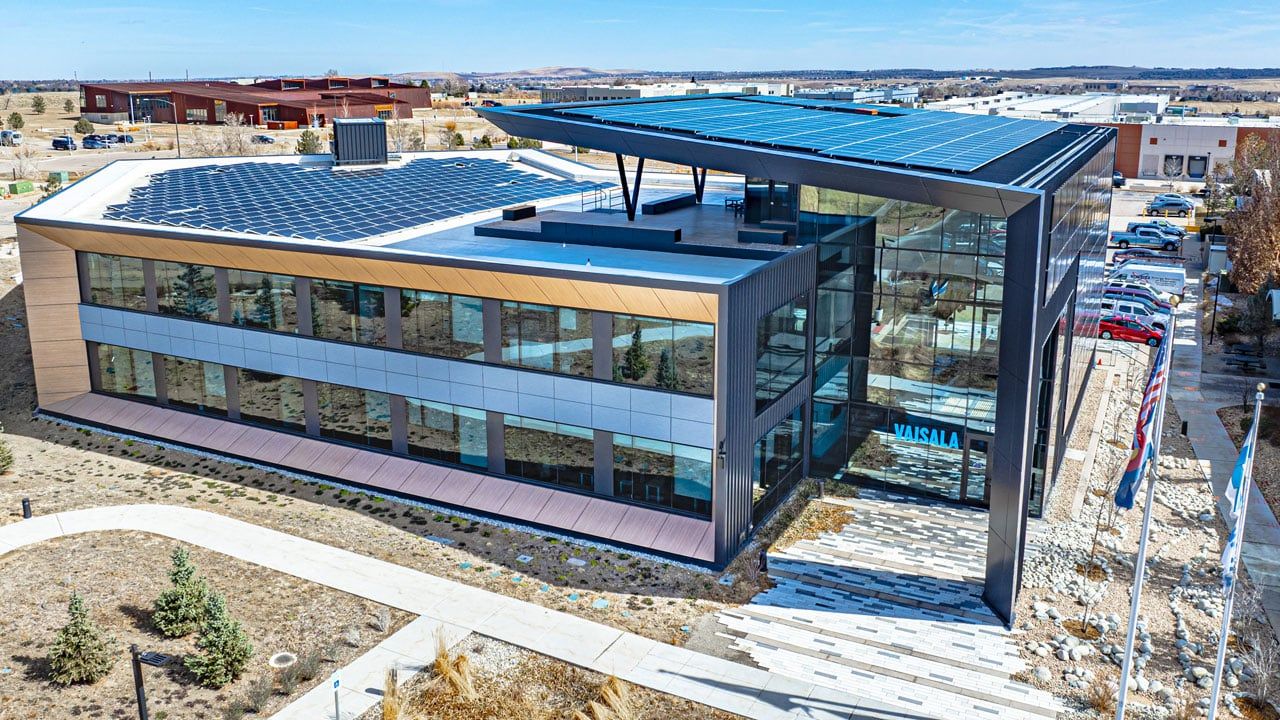Loveland’s development incentives begin to see return
Of the 11 businesses to which incentives were provided, nine have met the city’s incentive agreement requirements.
Two, Colorado vNet and Lightning Hybrids Inc., have failed to do so.
SPONSORED CONTENT
Commercial Solar is a big investment, but not an overwhelming one
Solar offers a significant economic benefit for commercial property owners while also positively impacting the environment and offering a path to compliance for new municipal requirements like Energize Denver. A local, experienced solar installer will help you navigate the complexities of commercial solar to achieve financial success for your project.
Colorado vNet, which received a $900,000 cash incentive, is no longer in business, a casualty of the recession.
The majority of its incentive went toward real estate improvement, according to Loveland Economic Development Director Betsey Hale. Because of this, City of Loveland property taxes for the building in which Colorado vNet was located increased from $14,145 in 2005 to $16,086 in 2011.
When Colorado vNet requested the funds in 2008, it estimate it would create 450 jobs within four years. The company produced lighting, media, security and climate systems for high-end homes, and when the real estate market tanked, so did vNet’s business.
In December 2009, Loveland City Attorney John Duval filed suit with Larimer County District Court against vNet owner Bill Beierwaltes in an effort to recoup $500,000 of the investment. The case remains unresolved.
Lightning Hybrids, while still in business, has fallen short of the 25 jobs promised when it was provided with a $50,000 cash incentive. As of 2010, the company employed 13 people.
The remaining nine investments provide a much brighter look at the incentive program in Loveland. In total, the city has collected $782,320 in direct revenue from incentive recipients, for a combined ROI of 35.76 percent for investments made in 2008 and 2009, according to a report compiled by Hale.
Incentives such as those provided by Loveland are evaluated on a timeline of five years, Hale said, and many of the businesses that received incentives are ahead of schedule in terms of making good on their promises for job creation.
Jobs created are not factored into ROI for incentives because the direct economic impact of job creation cannot be measured in the same way as property and sales tax, the two metrics taken into account when figuring the return on the incentives granted.
The two shining stars in terms of job creation do not collect sales tax, but Crop Production Services and Agrium Advanced Technology had created a combined 390 jobs as of 2010.
In total, the companies incentivized by the city created 419 jobs as of 2010, according to the 2010 State of Colorado Census of Employment and Wages. That number is even higher now, Hale said, but exact calculations beyond 2010 are not available.
Another highlight is JAX Outdoor Gear, one of two incentivized businesses that collects sales tax. With property tax and sales tax combined, JAX has generated $582,189 in revenue to the city, far exceeding the $300,000 cash payment provided to them.
An added bonus of JAX’s presence in Loveland is the $388,000 in sales tax from the surrounding businesses that are drawn to the area by the popular sporting goods store.
Most of the incentives provided by the city are cash, according to Hale, totaling $1.8 million in 2008 and 2009. Another $24,240 was granted in waivers and backfills and $353,143 was provided in fee deferrals.
The city is also still actively providing incentives to businesses. Earlier this month, Loveland-based Yancey’s Food Service requested $102,000 in fee waivers from the city for an 84,000-square-foot business expansion at its location at 5820 Piper Drive.
The expansion is expected to create $140,000 in additional property taxes for the city. The Loveland City Council met to make an official decision on the matter on April 17, after the Business Report went to press.
When making recommendations to council in regards to incentivizing businesses, city staff makes use of third-party analysis, provided by Colorado State University economist Martin Shields, according to Hale.
Shields uses a conservative model designed specifically for Loveland to determine the economic impact of providing incentives to a company. The analysis for Yancey’s shows that new net revenue to the city over a five-year period would be $287,883.
The purpose of the economic impact survey is to help city council make smart decisions, and it sometimes recommends against providing businesses with incentives, Hale said.
“We try to help council take calculated risks,” she said.
Of the 11 businesses to which incentives were provided, nine have met the city’s incentive agreement requirements.
Two, Colorado vNet and Lightning Hybrids Inc., have failed to do so.
Colorado vNet, which received a $900,000 cash incentive, is no longer in business, a casualty of the recession.
The majority of its incentive went toward real estate improvement, according to Loveland Economic Development Director Betsey Hale. Because…
THIS ARTICLE IS FOR SUBSCRIBERS ONLY
Continue reading for less than $3 per week!
Get a month of award-winning local business news, trends and insights
Access award-winning content today!

